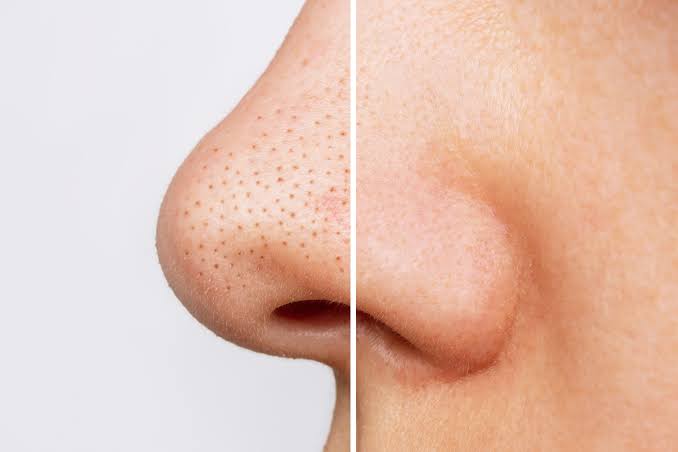Understanding and Treating Blackheads: A Comprehensive Guide
Blackheads can be one of the most persistent and frustrating skin issues, affecting not only our appearance but also our self-confidence. While the causes are often straightforward—primarily related to excess oil and clogged pores—finding effective solutions can be a challenge. This article will delve into the nature of blackheads, their causes, various treatment options, and some natural remedies. We’ll also provide tips for prevention and address frequently asked questions to help you achieve clearer skin.
What Are Blackheads?
Blackheads are a type of acne that occurs when hair follicles become clogged with excess oil (sebum) and dead skin cells. Unlike whiteheads, which remain beneath the skin, blackheads are open at the surface, allowing the trapped oil to oxidize and turn dark. They commonly appear on the nose, cheeks, and forehead but can affect other areas of the body as well.
How Blackheads Form
The process begins when the sebaceous glands produce too much oil, leading to clogged pores. When this excess oil combines with dead skin cells, it forms a plug that can become a blackhead. Factors such as hormonal changes, genetics, and improper skin care can exacerbate this process.
Causes of Blackheads
Understanding the causes of blackheads is crucial for effective prevention and treatment. Here are some common contributors:
1. Oily Skin
Individuals with oily skin are more prone to blackheads due to increased sebum production.
2. Blocked Pores
Clogged pores are a direct result of excess oil and dead skin cells, leading to the formation of blackheads.
3. Improper Skin Care
Neglecting a regular cleansing routine can allow oil and dirt to accumulate on the skin’s surface.
4. Touching or Picking
Frequent touching or picking at the skin can irritate the pores, worsening the blackhead issue.
5. Cosmetics
Using contaminated or low-quality makeup can lead to clogged pores and blackhead formation.
Effective Methods for Removing Blackheads
When it comes to treating blackheads, several approaches can be considered, depending on severity and individual skin type. It’s always advisable to consult a dermatologist for personalized recommendations.
Pore-Clearing Products
Products that contain salicylic acid or benzoyl peroxide can effectively unclog pores and reduce the occurrence of blackheads. These ingredients help exfoliate the skin and keep it clear.
Manual Extraction
While tools like tweezers or blackhead removal strips can be effective, manual extraction should be performed by professionals to minimize the risk of irritation or scarring.
Masks
Adhesive masks designed for blackhead removal can be applied to the affected areas. These masks adhere to the blackheads and are removed after a specified period, pulling out the clogged material from the pores.
Chemical Peels
Chemical peels are treatments that use acidic solutions to exfoliate the skin deeply. Conducted by dermatologists, these peels can improve skin texture and reduce pore size over time.
Natural Treatments for Blackheads
Many individuals prefer to explore natural remedies for blackhead treatment. Here are some effective DIY options:
1. Baking Soda Scrub
Baking soda can help exfoliate the skin and remove dead cells. Mix it with water to form a paste and gently massage it onto the affected areas before rinsing.
2. Honey and Lemon Mask
Honey has antibacterial properties, while lemon juice acts as a natural astringent. Combine equal parts of honey and lemon juice, apply to the skin, and let it sit for 15-20 minutes before rinsing.
3. Clay Masks
Clay masks are excellent for absorbing excess oil and detoxifying the skin. Apply a clay mask once a week to help reduce blackheads.
4. Steam Treatment
Steaming your face can help open up pores, making it easier to remove blackheads. Follow with a gentle scrub for best results.
Important Note
Before trying any natural remedy, ensure your skin is not irritated or damaged. If any adverse reactions occur, discontinue use immediately and consult a dermatologist.
Tips to Prevent Blackheads
Prevention is key when it comes to managing blackheads. Here are some effective strategies:
1. Exfoliate Regularly
Use products containing alpha or beta hydroxy acids to exfoliate the skin and prevent dead skin buildup.
2. Choose Oil-Free Products
Opt for non-comedogenic makeup and moisturizers to avoid clogging pores.
3. Maintain a Clean Face
Always cleanse your face before bed to remove makeup and excess oil.
4. Avoid Squeezing
Resist the temptation to squeeze blackheads, as this can lead to inflammation and potential scarring.
5. Stay Hydrated
Drink plenty of water and use sunscreen to protect your skin from sun damage, which can exacerbate skin issues.
FAQs about Blackheads
What skin types are most prone to blackheads?
Individuals with oily and combination skin types are generally more susceptible to blackheads due to higher oil production.
Can diet affect blackhead formation?
While diet may not be the sole cause, a high-glycemic diet and dairy consumption have been linked to acne. Eating a balanced diet rich in fruits and vegetables can support skin health.
Are blackheads the same as pimples?
No, blackheads are open comedones, while pimples are inflamed lesions that can occur when bacteria infect clogged pores.
How often should I exfoliate to prevent blackheads?
Exfoliating 1-2 times a week is generally sufficient for most skin types. Adjust based on your skin’s response and sensitivity.
When should I see a dermatologist for blackheads?
If over-the-counter treatments and natural remedies do not yield results, or if your skin becomes inflamed, it’s time to consult a dermatologist for professional advice.
Conclusion
Blackheads can be a persistent nuisance, but with the right knowledge and treatment strategies, they can be effectively managed. By understanding their causes, utilizing appropriate products and treatments, and implementing preventative measures, you can achieve clearer skin and restore your confidence. Whether you opt for medical treatments or natural remedies, consistent care is key to keeping blackheads at bay. Remember, everyone’s skin is different, so take the time to find what works best for you.

